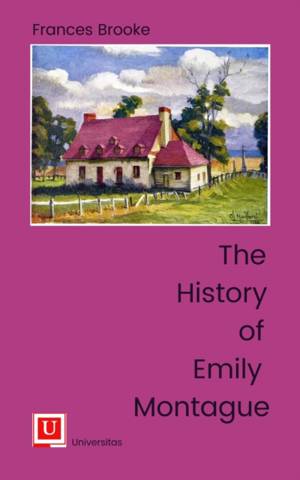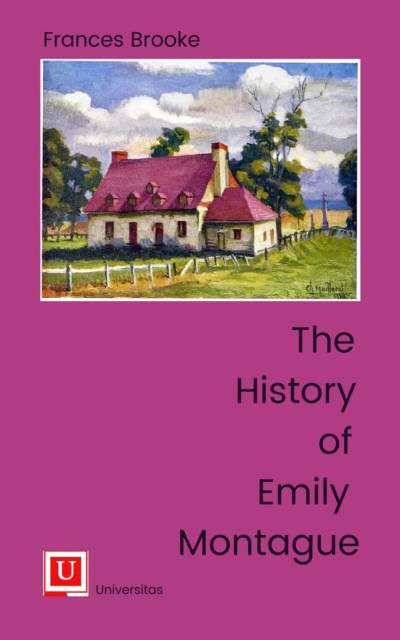
- Retrait gratuit dans votre magasin Club
- 7.000.000 titres dans notre catalogue
- Payer en toute sécurité
- Toujours un magasin près de chez vous
- Retrait gratuit dans votre magasin Club
- 7.000.0000 titres dans notre catalogue
- Payer en toute sécurité
- Toujours un magasin près de chez vous
Description
The History of Emily Montague opens three years after the conclusion of the Seven Years' War, with letters spanning from April 1766 to November 1767. This epistolary novel, primarily written from the perspectives of Colonel Edward Rivers, a British officer seeking a future in the newly acquired Canadian colony, and Arabella Fermor, the witty friend of Emily Montague, offers readers a unique blend of romance, historical context, and intellectual trends. While the love story follows traditional themes-financial struggles, marital misunderstandings, and eventual resolutions-Brooke's novel stands out for its incorporation of various literary movements from the 18th century.
Brooke, whose work bridges the Augustan Age and the Age of Sensibility, combines sentimental fiction, pre-Romanticism, and even early feminist ideas in this rich narrative. The History of Emily Montague engages with the sublime and picturesque, offering an early exploration of the picturesque landscape of Canada. The Canadian wilderness, depicted as both Edenic and gothic, plays a pivotal role, almost becoming a character itself, influencing the emotional and physical experiences of the protagonists. This unique depiction of Canadian colonial life sets Brooke's novel apart from other works of sentimental fiction, as it presents realistic details about life in Quebec, highlighting both personal relationships and broader nationhood concerns.
What further distinguishes the novel is Brooke's protofeminist critique of social norms. Like other early feminist authors such as Aphra Behn and Mary Wollstonecraft, Brooke questions arranged marriages and societal expectations of women, positioning her novel as a bridge between traditional courtship tales and the more progressive feminist literature that would later emerge, such as the works of Jane Austen. This makes the novel not only a significant epistolary romance but also an important feminist text.
Brooke's blending of realism, sentimentalism, and the picturesque within a colonial setting, along with her commentary on British imperialism and identity, offers readers a fresh perspective on both 18th-century fiction and early Canadian literature. With its unique mix of romance, political and social commentary, and picturesque aesthetics, The History of Emily Montague continues to captivate readers interested in the literary and cultural trends of the time.Spécifications
Parties prenantes
- Auteur(s) :
- Editeur:
Contenu
- Nombre de pages :
- 400
- Langue:
- Anglais
Caractéristiques
- EAN:
- 9781988963402
- Date de parution :
- 10-10-22
- Format:
- Livre relié
- Format numérique:
- Genaaid
- Dimensions :
- 161 mm x 235 mm
- Poids :
- 680 g

Les avis
Nous publions uniquement les avis qui respectent les conditions requises. Consultez nos conditions pour les avis.






